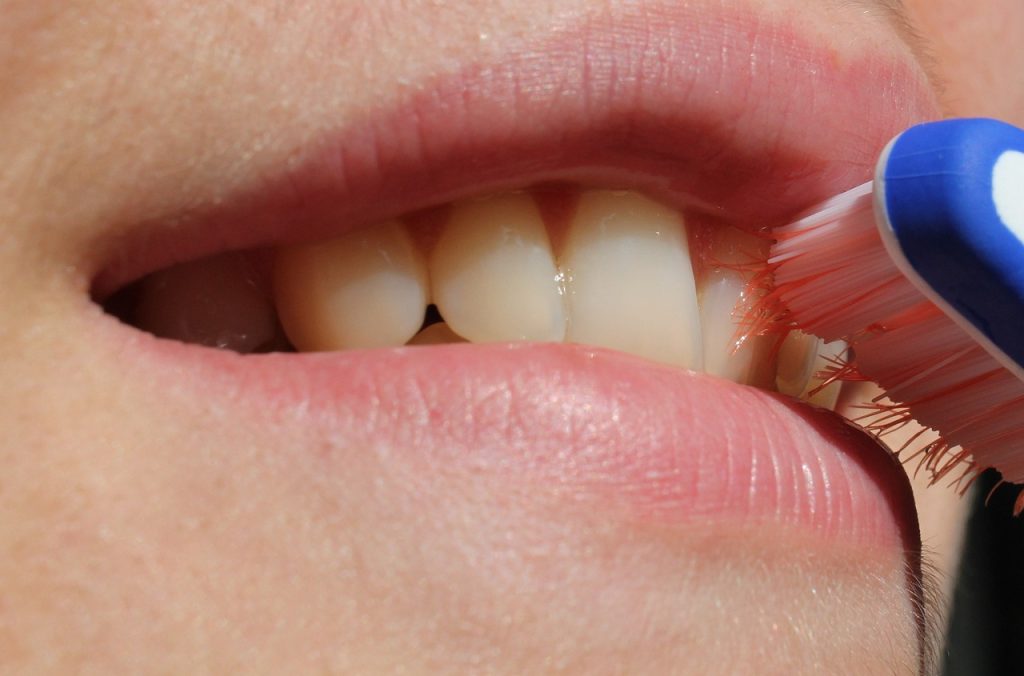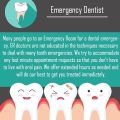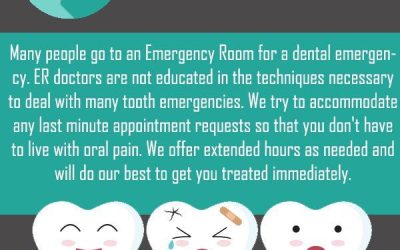So you’ve chipped your tooth, huh? We’ve all been there – that dreaded moment when you bite into something too hard or take a fall and feel that unmistakable crunch. It’s not exactly a pleasant experience, but the question that lingers in your mind is: can a chipped tooth really wait for treatment? Well, grab a seat and let’s have a chat about whether you can put off fixing that dental mishap or if it’s better to face it head-on.
Immediate Actions
Contacting a dentist
When you chip a tooth, one of the first things you should do is contact a dentist. It’s important to get professional advice and assistance as soon as possible. Your dentist will be able to guide you through the next steps and recommend the most appropriate treatment for your situation. They can also schedule an appointment for you to come in and have your tooth evaluated.
Evaluating the severity
After contacting a dentist, it’s important to assess the severity of the chip. Try to determine how much of the tooth has been affected and whether there is any pain or sensitivity. This information will help your dentist in making a proper diagnosis and deciding on the best course of treatment.
Rinsing the mouth
To protect against potential infection, it’s a good idea to rinse your mouth with warm saltwater after chipping a tooth. This can help clean the area and reduce the risk of bacteria entering the damaged tooth. Simply dissolve a teaspoon of salt in a glass of warm water, swish it around your mouth for about thirty seconds, and then spit it out. This can be done a few times a day until you can see your dentist.
Applying cold compress
If you experience any swelling or facial pain after chipping your tooth, applying a cold compress can help reduce these symptoms. Take a clean cloth or ice pack and apply it to the affected area for about fifteen minutes. This can help constrict blood vessels and minimize any swelling or discomfort.
Taking over-the-counter pain relievers
If you’re experiencing pain or discomfort due to a chipped tooth, over-the-counter pain relievers such as ibuprofen or acetaminophen can provide temporary relief until you can see your dentist. However, it’s important to follow the instructions on the packaging and not exceed the recommended dosage.
Assessing the Damage
Determining the location of the chip
The location of the chip can significantly impact the necessary treatment options. A chip on the biting surface of a tooth may require different treatment than one on the edge or near the gumline. By identifying the precise location of the chip, your dentist can determine the best approach for repair or restoration.
Examining the size of the chip
The size of the chip is another important factor to consider when assessing the damage. A small, superficial chip may not require as extensive of treatment as a larger chip that affects a significant portion of the tooth’s structure. Your dentist will carefully examine the size of the chip to determine the appropriate treatment options.
Checking for sensitivity or exposed nerves
After chipping a tooth, it’s crucial to check for any sensitivity or exposed nerves. If you experience pain or discomfort when eating or drinking hot or cold foods, it may indicate that the chip has exposed the inner layers of the tooth, including the nerve. This can require immediate treatment to prevent further damage or infection.
Assessing the cause of the chip
Understanding the cause of the chip can help your dentist determine the best way to address the issue and prevent future damage. Common causes of chipped teeth include accidents, dental trauma, biting down on hard objects, or underlying dental conditions. By assessing the cause, your dentist can provide appropriate treatment and offer recommendations to avoid similar incidents in the future.

Potential Risks of Delaying Treatment
Increased risk of infection
One of the potential risks of delaying treatment for a chipped tooth is an increased risk of infection. When the protective enamel layer of a tooth is compromised, bacteria can enter and cause an infection. This can lead to more serious oral health issues if left untreated.
Pain or discomfort
A chipped tooth can cause pain or discomfort, especially if there is sensitivity or exposed nerves. Delaying treatment means prolonging this discomfort, which can affect your daily activities and quality of life. Seeking immediate treatment can help alleviate pain and prevent further damage.
Compromised appearance
A chipped tooth can have a significant impact on your smile and overall appearance. If you delay treatment, the chip may become more noticeable or worsen over time. This can affect your self-confidence and how you interact with others. Seeking timely treatment can restore the appearance of your smile and boost your confidence.
Weakened tooth structure
A chipped tooth has weakened structural integrity, making it more susceptible to further damage. Delaying treatment can increase the risk of additional chips, cracks, or fractures. By addressing the issue promptly, your dentist can reinforce the tooth’s structure and prevent further complications.
Factors Influencing the Need for Immediate Treatment
Extent of the chip
The extent of the chip plays a significant role in determining the need for immediate treatment. If the chip is small and superficial, it may not require immediate attention. However, a larger chip that exposes the inner layers of the tooth may necessitate immediate treatment to protect the tooth from further damage or infection.
Location of the chip
The location of the chip can also influence the urgency of treatment. A chip that affects a tooth’s biting surface may require different treatment than one that affects the front of a tooth. Your dentist will evaluate the location of the chip to determine the appropriate treatment approach.
Pain or sensitivity experienced
Experiencing pain or sensitivity after chipping a tooth is a clear indicator that immediate treatment may be necessary. Pain or sensitivity can indicate that the chip has exposed the inner layers of the tooth, including the nerve, and requires prompt attention.
Exposure of nerves or pulp
If the chip has exposed the nerves or pulp of the tooth, immediate treatment is crucial to prevent further damage or infection. Exposed nerves can cause severe pain and can lead to more complex dental issues if left untreated.
Previous dental work
If you have previously undergone dental treatments, such as fillings or crowns, and chip the restored tooth, immediate treatment may be necessary. The chip can compromise the integrity of the dental work, and prompt attention can help maintain the stability and function of the restoration.

Types of Chipped Tooth
Minor chipped tooth
A minor chipped tooth typically involves a small, superficial chip that doesn’t expose the inner layers of the tooth. In many cases, this type of chip may not cause pain or sensitivity, but it can still impact the tooth’s appearance. Treatment options for a minor chipped tooth may include dental bonding or the use of dental veneers to restore the tooth’s shape and aesthetic.
Moderate chipped tooth
A moderate chipped tooth involves a larger chip that may expose the inner layers of the tooth, leading to pain or sensitivity. Treatment for a moderate chipped tooth may involve dental bonding, dental veneers, or a dental crown, depending on the extent of the chip and the affected tooth’s location.
Severe chipped tooth
A severe chipped tooth usually involves a significant portion of the tooth being damaged or fractured. This type of chip can cause severe pain, sensitivity, and may expose the nerves or pulp of the tooth. Treatment options for a severe chipped tooth may include dental bonding, dental veneers, a dental crown, or even root canal therapy if the nerve is affected or infected.
Vertical/chipped root fracture
A vertical or chipped root fracture extends vertically through the tooth’s root and can be particularly challenging to treat. In some cases, the tooth may require extraction to prevent further damage or infection. However, if the fracture is minimal and the tooth can be saved, treatment may involve a splint, root canal therapy, or a dental crown.
Temporary Solutions
Dental wax or temporary filling
If you can’t immediately see a dentist after chipping a tooth, you can temporarily protect the damaged tooth by using dental wax or a temporary filling material. Both options can help cover any sharp edges and provide some relief from sensitivity or discomfort. However, it’s important to remember that these solutions are temporary and should not substitute professional dental treatment.
Over-the-counter dental cement
Over-the-counter dental cement can be used as a temporary solution to hold a chipped tooth in place until you can see your dentist. This can help prevent further damage or displacement of the tooth. However, it’s crucial to follow the instructions carefully and seek professional dental evaluation and treatment as soon as possible.
Avoiding hard and sticky foods
While waiting for dental treatment, it’s advisable to avoid hard and sticky foods that can further damage the chipped tooth. Choosing softer foods and avoiding chewing on the side of the mouth with the damaged tooth can help prevent any additional chips or fractures.
Gentle brushing and flossing
Maintaining good oral hygiene is essential even with a chipped tooth. However, it’s important to brush and floss gently around the damaged tooth to avoid causing further damage or irritation. Using a soft-bristled toothbrush and a gentle flossing technique can help protect the chipped tooth until it can be properly treated.

Long-term Consequences of Delaying Treatment
Risk of tooth decay
Delaying treatment for a chipped tooth increases the risk of tooth decay. When a tooth is chipped, it creates areas where bacteria can accumulate, leading to the formation of cavities. Tooth decay can further weaken the tooth structure and may require more invasive dental procedures to treat.
Gum disease
A chipped tooth can disrupt the health and function of surrounding gum tissues, increasing the risk of gum disease. Gum disease can cause gum inflammation, bleeding, and eventual tooth loss if left untreated. Prompt treatment of a chipped tooth can help prevent the development or progression of gum disease.
Tooth loss
Untreated chips can weaken the tooth’s structure and make it more susceptible to fractures or further damage. Over time, this can lead to tooth loss, which can have significant impacts on your overall oral health and quality of life. Seeking timely treatment can help preserve the affected tooth and prevent tooth loss.
Misalignment of adjacent teeth
A chipped tooth can disrupt the alignment and balance of adjacent teeth. This can cause issues with your bite, leading to jaw pain, difficulty eating, and increased wear on the remaining teeth. Prompt treatment can help prevent misalignment and maintain the proper functioning of your teeth.
Treatment Options
Dental bonding
Dental bonding is a popular treatment option for chipped teeth. It involves the application of a tooth-colored composite resin to the affected tooth, which is then shaped, hardened, and polished. Dental bonding can restore the tooth’s appearance, improve its functionality, and provide protection against further damage.
Dental veneers
Dental veneers are thin shells made of porcelain or composite resin that are custom-made to fit over the front surface of a chipped tooth. Veneers can effectively mask the chip and enhance the tooth’s appearance. They are a long-lasting solution that can provide natural-looking results.
Dental crown
A dental crown may be necessary for a severely chipped tooth. A crown is a tooth-shaped cap that covers the entire visible portion of the damaged tooth. It can provide strength, protection, and aesthetics to the chipped tooth. The crown is custom-made to match the color and shape of your natural teeth.
Root canal therapy
If a chip has exposed the tooth’s nerve or pulp, root canal therapy may be required. This involves removing the infected or damaged tissue, sterilizing the root canal, and sealing it to prevent further infection. After the root canal, a dental crown is typically placed to restore the tooth’s strength and appearance.
Tooth extraction
In some cases, a chipped tooth may be irreparable, especially if it involves a vertical root fracture or severe damage. In these situations, the tooth may need to be extracted. Your dentist will discuss tooth replacement options, such as dental implants or bridges, to restore the appearance and functionality of your smile.
Importance of Professional Evaluation
Accurate diagnosis
A professional evaluation by a dentist is crucial to accurately diagnose the extent of the chip and any underlying issues. Through a comprehensive examination, your dentist can identify the best treatment options and develop a personalized treatment plan tailored to your specific needs.
Proper treatment recommendation
A dentist’s expertise is essential in recommending the most appropriate treatment for your chipped tooth. They can evaluate the severity, location, and other factors to determine whether dental bonding, veneers, crowns, or other treatments are necessary. Their professional recommendation can help ensure optimal results and long-term dental health.
Identification of underlying issues
A chipped tooth may be a symptom of underlying dental issues, such as tooth decay, gum disease, or bite problems. Through a professional evaluation, your dentist can identify these underlying issues and provide the necessary treatment to address them. This comprehensive approach helps prevent future complications and maintains the overall health of your teeth and gums.
Preservation of dental health
Seeking professional evaluation and treatment for a chipped tooth is essential for the long-term preservation of your dental health. Timely intervention can prevent further damage, reduce the risk of infection, and maintain the functionality and aesthetics of your smile. By prioritizing professional evaluation, you are taking proactive steps towards ensuring the longevity of your teeth.
Preventing Chipped Teeth
Wearing mouthguards during physical activities
If you engage in contact sports or activities that carry a risk of dental trauma, wearing a mouthguard is crucial. Mouthguards can absorb the impact and protect your teeth from chips, fractures, and other injuries. Custom-fitted mouthguards provided by your dentist offer the best protection and comfort.
Avoiding biting hard objects or ice
To prevent chipped teeth, it’s important to avoid biting down on hard objects, such as ice, pens, or fingernails. These habits increase the risk of chips or fractures. Instead, choose tooth-friendly alternatives or use scissors or tools designed for the intended purpose.
Maintaining good oral hygiene
Practicing good oral hygiene is essential in preventing dental issues, including chipped teeth. Brushing your teeth twice a day with fluoride toothpaste, flossing daily, and using mouthwash can help keep your teeth and gums healthy and strong. Regular dental check-ups are also vital for professional cleanings and early detection of any oral health concerns.
Attending regular dental check-ups
Regular dental check-ups are essential for maintaining optimal oral health and preventing chipped teeth. Your dentist can identify potential issues early on, provide preventive treatments, and offer advice on how to avoid dental trauma. By attending regular check-ups, you can stay proactive in maintaining a healthy smile.
In conclusion, a chipped tooth should not be left untreated. It’s important to take immediate action, such as contacting a dentist, evaluating the severity, rinsing the mouth, applying a cold compress, and taking over-the-counter pain relievers. Assessing the damage by determining the location and size of the chip, checking for sensitivity or exposed nerves, and assessing the cause is crucial. The potential risks of delaying treatment include an increased risk of infection, pain or discomfort, compromised appearance, and weakened tooth structure. Factors influencing the need for immediate treatment include the extent and location of the chip, pain or sensitivity experienced, exposure of nerves or pulp, and previous dental work. There are different types of chipped teeth, ranging from minor to severe, and even vertical root fractures. Temporary solutions, such as dental wax or temporary filling, over-the-counter dental cement, avoiding hard and sticky foods, and practicing gentle brushing and flossing, can provide some relief. However, delaying treatment may lead to long-term consequences like tooth decay, gum disease, tooth loss, and misalignment of adjacent teeth. Treatment options include dental bonding, veneers, crowns, root canal therapy, or tooth extraction depending on the severity and location of the chip. Professional evaluation is crucial for accurate diagnosis, proper treatment recommendation, identification of underlying issues, and preservation of dental health. Preventing chipped teeth involves wearing mouthguards during physical activities, avoiding biting hard objects or ice, maintaining good oral hygiene, and attending regular dental check-ups. Remember, seeking prompt treatment for a chipped tooth is necessary to prevent further damage, alleviate pain or discomfort, and maintain the overall health and appearance of your smile.












